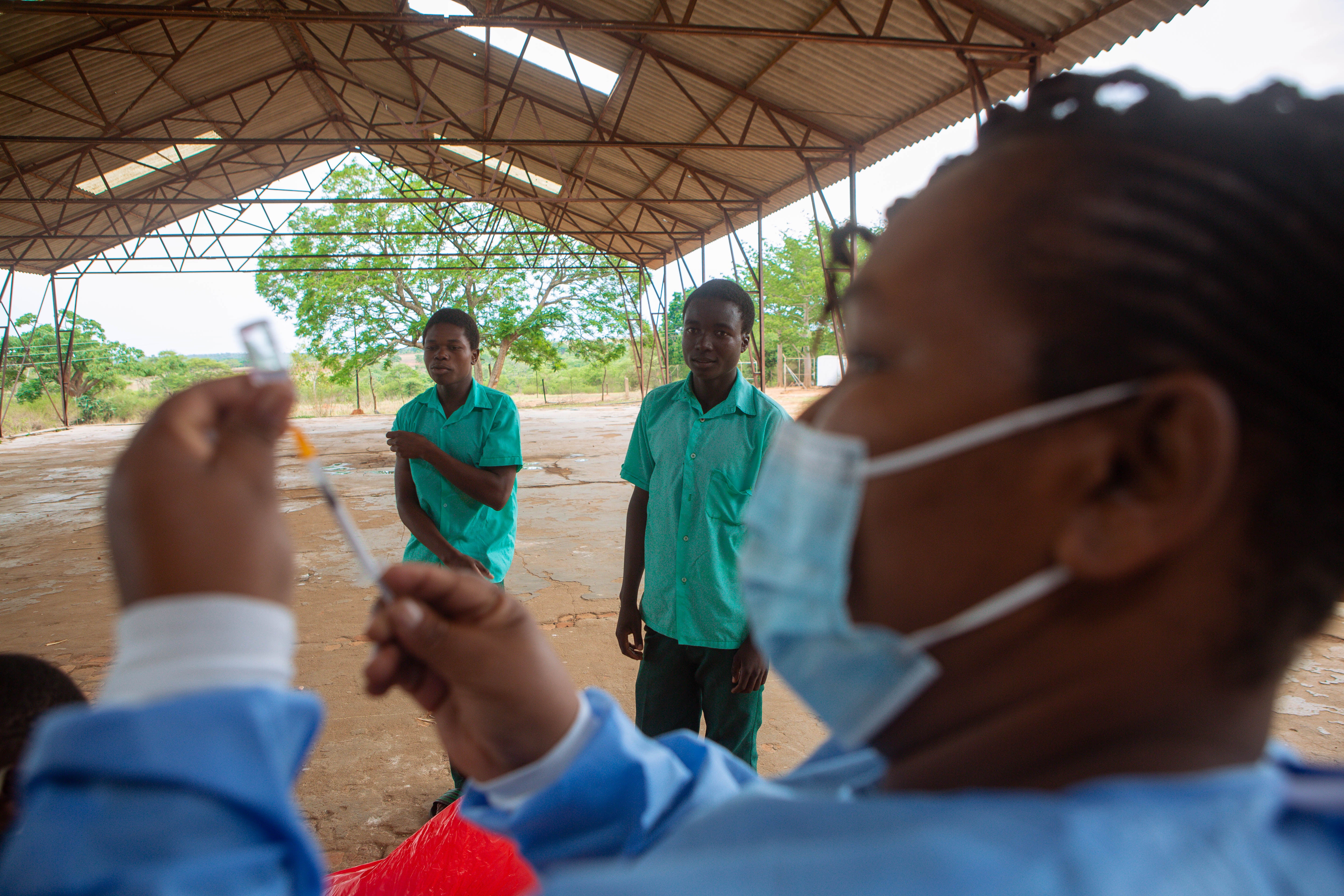Rich nations break pledge to vaccinate 40% of Africa against Covid by end of 2021
World Health Organisation warns target of 70% coverage by mid-2022 now looks doomed

Your support helps us to tell the story
From reproductive rights to climate change to Big Tech, The Independent is on the ground when the story is developing. Whether it's investigating the financials of Elon Musk's pro-Trump PAC or producing our latest documentary, 'The A Word', which shines a light on the American women fighting for reproductive rights, we know how important it is to parse out the facts from the messaging.
At such a critical moment in US history, we need reporters on the ground. Your donation allows us to keep sending journalists to speak to both sides of the story.
The Independent is trusted by Americans across the entire political spectrum. And unlike many other quality news outlets, we choose not to lock Americans out of our reporting and analysis with paywalls. We believe quality journalism should be available to everyone, paid for by those who can afford it.
Your support makes all the difference.Rich nations have broken their promise to vaccinate 40 per cent of people against Covid in every African country by the end of 2021, new figures show.
Just seven of the continent’s 54 countries have reached the target, according to the World Health Organisation, with most lagging way behind at under 10 per cent.
Africa’s largest nation, Nigeria, has fully vaccinated just 2.1 per cent of its people, with Ethiopia (3.5 per cent) and Democratic Republic of Congo (0.1 per cent) also having among the lowest rates.
The target was set at the G20 summit in Rome in October, but only Morocco, Tunisia, Botswana and Rwanda have reached it, of countries on mainland Africa.
Three small island nations – where logistical challenges are less daunting – have also passed 40 per cent, including Seychelles and Mauritius, which have fully vaccinated more than 70% of their populations.
The WHO is now warning that its further target of 70 per cent coverage in every nation of the world by June 2022 looks doomed.
“As things stand, predictions are that Africa may not reach the 70 per cent vaccination coverage target until August 2024,” said regional director Matshidiso Moeti.
The UK has said it will have achieved its pledge to donate 30 million surplus doses to the developing world by the year’s end, having handed over 21.8 million by the middle of December.
But a former head of the UK Vaccine Taskforce says that effort falls far short of what is needed and leaves “a gaping hole in our Covid-19 defences”.
“We must fight the pandemic globally to protect the UK from Omicron and from other future variants harming our health and economic prosperity and hindering our freedom of movement,” Clive Dix said this week.
“Sharing vaccine doses with other countries should not be considered only when we have doses to spare. The drive to vaccinate the UK must be accompanied by a similar effort beyond our shores.”
The UK also continues to block the lifting of patents on Covid vaccines – to drive down the cost for developing countries – despite the US president, Joe Biden, swinging behind the idea.
Mr Johnson has claimed the UK is “leading” the world in donations – despite sharing fewer jabs than the US, Germany and France – and provoked anger by claiming the problem in Africa is “vaccine hesitancy”.
Last summer, he announced that 100 million doses would be released by the middle of 2022, but pleas for the programme to be speeded up have been rejected.
Of the first 30 million the UK has shared, just 4.6 million have been handed over as direct donations to another government.
The majority have flowed directly from the manufacturer AstraZeneca to the Covid-19 Vaccines Global Access Facility (Covax), which received £548m from the UK.
Join our commenting forum
Join thought-provoking conversations, follow other Independent readers and see their replies
Comments